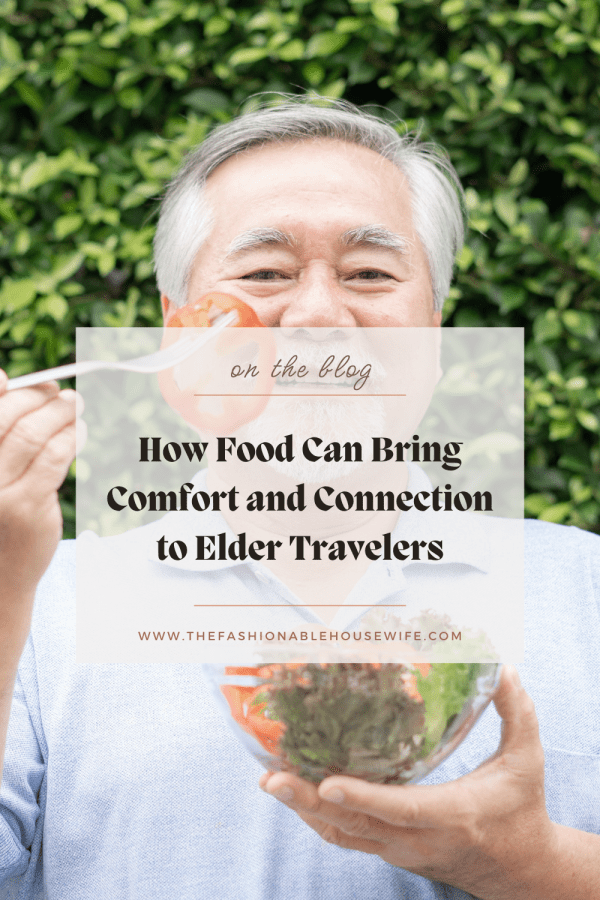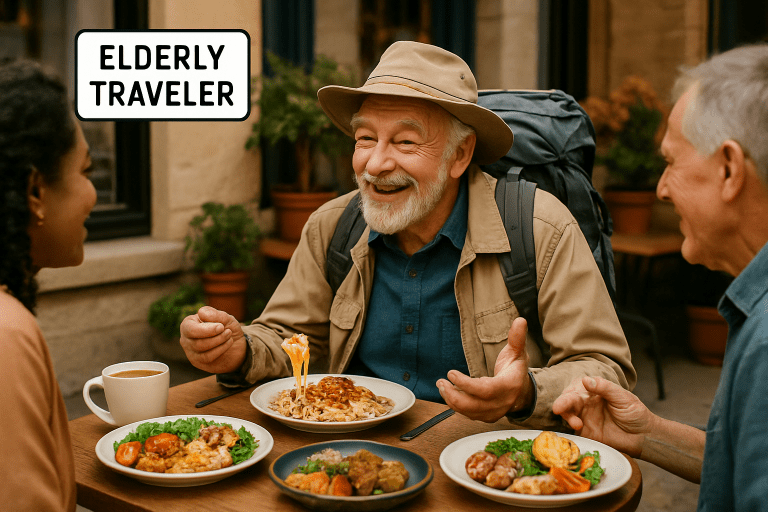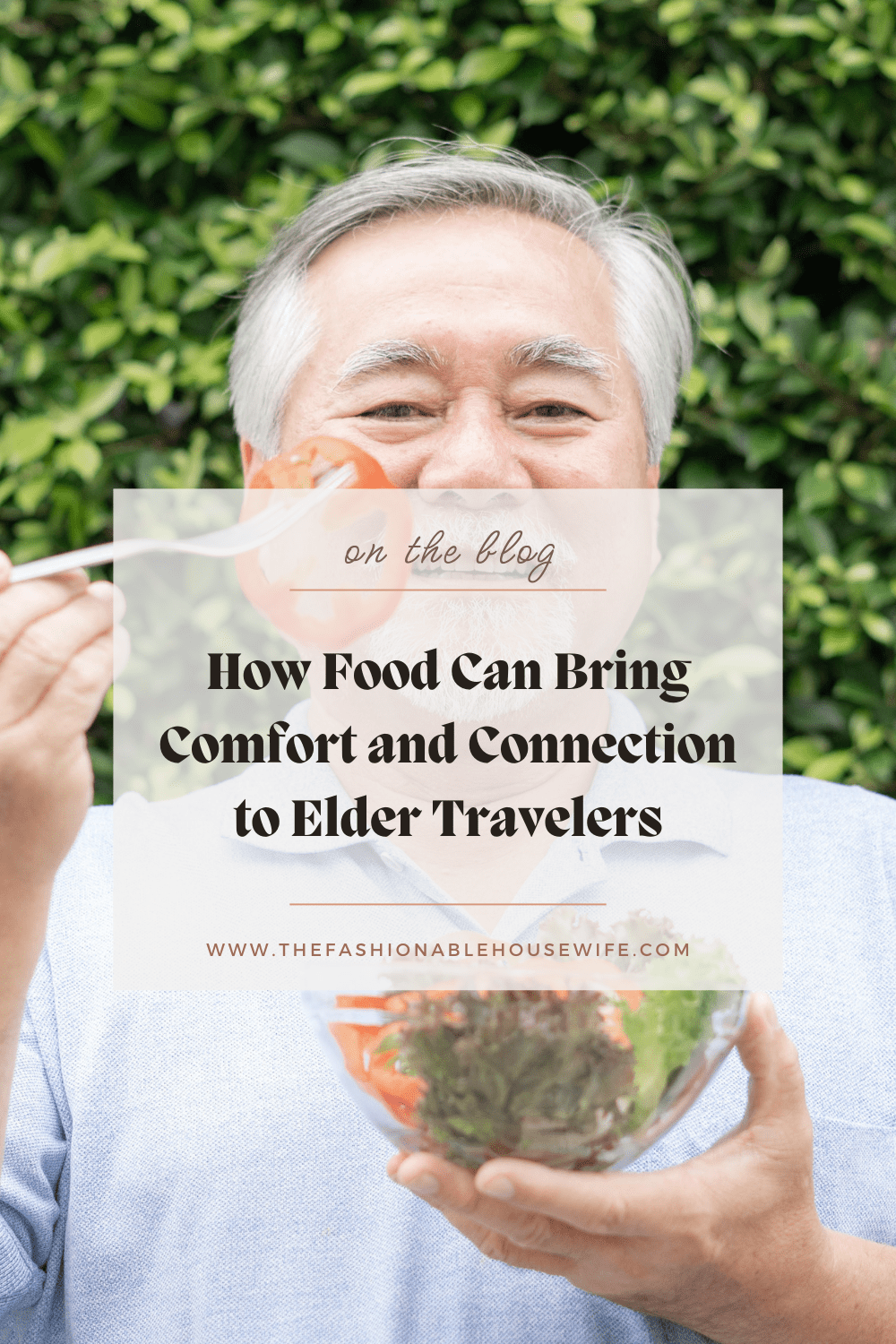How Food Can Bring Comfort and Connection to Elder Travelers

Key Takeaways
- Food experiences are deeply intertwined with emotional well-being, especially for older adults who travel.
- Shared meals help promote connection, prevent isolation, and support physical and mental health.
- Mindful eating and culinary traditions can serve as anchors of security for elder travelers.
- Diverse food cultures offer meaningful ways for older travelers to maintain dignity, joy, and independence.
Table of Contents
- Why Food Matters on the Road for Older Adults
- The Power of Shared Meals and Social Connections
- How Sensory Memories Provide Comfort and Security
- Navigating Dietary Needs While Traveling
- Positive Cultural Exchanges Through Culinary Experiences
- Mindful Eating and Mental Health Benefits
- Tips for Safe, Meaningful Dining as We Age
- The Importance of Family Rituals and Food Traditions
- Helpful Resources and Further Reading
Why Food Matters on the Road for Older Adults
Aging can bring unique challenges, yet food often remains a reliable source of comfort and familiarity, particularly during travel. Whether discovering new destinations or returning to beloved ones, mealtime rituals provide more than simple nourishment. For many older travelers, these experiences reinforce identity and create a sense of home, even in changing environments. As Claudette Spinelli has noted, such connections also nurture emotional well-being, offering stability and joy that contribute meaningfully to overall quality of life.
Maintaining positive dining experiences on the road can support dignity and independence in older adults. Sadly, as highlighted by the National Council on Aging, older adults can sometimes face alienation or even neglect, making nourishing, enjoyable meals especially meaningful. Developing healthy eating habits while traveling helps older adults remain physically resilient and emotionally fulfilled, giving them opportunities for joy and connection wherever they are.
The Power of Shared Meals and Social Connections
Loneliness can be a real concern for elder travelers, yet sharing a meal—be it a picnic in a public park or dinner at a bustling bistro—breaks down social barriers and encourages new friendships. Older adults frequently report feeling less isolated when they join communal tables, food tours, or local events. These shared experiences become a lifeline for connection, offering opportunities to bond over tastes both familiar and new.
Unlike other forms of social interaction, dining naturally brings people together. A simple act like breaking bread becomes the foundation for storytelling, laughter, and support. For many elder travelers, being included at the table—whether with family, other travelers, or locals—delivers a sense of safety and belonging that is hard to replicate elsewhere.
The memories of home-cooked meals, favorite childhood snacks, or family celebrations often live vividly in our senses. For older adults, the sights, smells, and flavors of certain foods evoke tender memories and provide comfort in moments of uncertainty. During travel, a familiar pastry from a bakery or the aroma of freshly brewed coffee can anchor older adults to something known and cherished.
Neurobiological research, such as findings from the National Institute on Aging, suggests that these sensory experiences strengthen emotional regulation and memory retention. Simple rituals—like enjoying a favorite breakfast—become essential coping strategies for navigating the unknown.

Navigating Dietary Needs While Traveling
Traveling with specific dietary requirements can present unique challenges for older travelers, especially those managing chronic conditions or food allergies. Careful planning before arrival—including researching local cuisine, communicating needs to hosts, and seeking restaurants offering flexible menus—can make dining out much more enjoyable and safe.
Older travelers often benefit from packing nutritious snacks, bringing dietary supplements, and occasionally consulting healthcare providers. By staying proactive and informed, elder travelers can explore diverse culinary scenes while still prioritizing their health and well-being.
Positive Cultural Exchanges Through Culinary Experiences
Engaging in authentic food experiences—such as joining cooking classes, browsing local markets, or attending home-hosted meals—enriches travel for older adults in unique ways. These moments facilitate cross-cultural understanding, enable hands-on connections to tradition, and reward curiosity. Embracing foods that are both new and reminiscent of one’s past can transform travel into a deeply meaningful journey.
Respectful participation in local food cultures often leads to genuine friendships and memorable stories. By learning about and appreciating the customs around dining, older adults reinforce their own sense of identity while broadening their view of the world. Publications like The New York Times Travel offer inspiring insights into how food bridges cultures for all ages.
Mindful Eating and Mental Health Benefits
Taking time to savor meals—not just eating, but truly experiencing each bite—offers elder travelers the chance to unwind and engage with their environment. Mindful eating is linked to reduced anxiety, improved digestion, and a brighter outlook while away from home.
Focusing on flavors and textures, and sharing food can turn an everyday meal into a meditation. These grounding rituals foster presence and resilience, helping older adults adapt more confidently to new surroundings.
Tips for Safe, Meaningful Dining as We Age
- Seek out established restaurants or well-reviewed local spots, especially when trying unfamiliar cuisine.
- Ask about ingredients to avoid allergens or foods that may not align with your diet.
- Maintain proper food hygiene by looking for clean facilities and observing local food safety guidelines.
- Bring along comfort items, such as your own utensils or seasonings, to make meals feel more familiar.
- Stay open to recommendations from trusted guides or local residents, ensuring dietary needs are met while exploring regional flavors.
Additional safety tips and resources can be found through organizations like AARP, which offers detailed advice on safe and enjoyable journeys for aging travelers.
The Importance of Family Rituals and Food Traditions
When far from home, preparing or enjoying traditional family recipes can nourish much more than the body—it strengthens generational bonds and soothes feelings of homesickness. Whether recreating a special holiday dish or sharing stories of family gatherings, these acts preserve culture and foster resilience.
Food rituals—especially those involving loved ones—become meaningful parts of travel routines, nurturing self-worth and reinforcing cherished memories. For elder female travelers, these customs turn simple meals into treasured life experiences.
Conclusion
Food holds a unique power to comfort and connect elder travelers, offering both nourishment and emotional grounding during their journeys. Familiar meals can spark cherished memories, while new culinary experiences invite opportunities to engage with different cultures in meaningful ways. Sharing food fosters companionship, easing feelings of isolation and enriching social bonds. Beyond physical sustenance, these moments of flavor and connection nurture emotional well-being, creating a sense of home wherever the road leads. In this way, food becomes both anchor and bridge, enhancing travel with warmth, belonging, and lasting joy.

